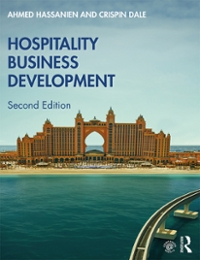Question
Case Study: PYJ Foods Company PYJ Foods (PYJ) is a well-established company employing 400 people on the outskirts of a city in the South of
Case Study: PYJ Foods Company
PYJ Foods (PYJ) is a well-established company employing 400 people on the outskirts of a city in the South of England. It was, until recently, a family business. The company produces a range of health foods and vitamin supplements which are sold internationally. Over half its staff are employed in its manufacturing and warehouse facilities. The remaining 120 work in sales & marketing, product development and business administration.
PYJ has seen rapid increases in sales over recent years. It is profitable but has never been efficiently managed. Product prices are not competitive, and its market share has been somewhat eroded in recent years as new competitors have entered this lucrative market.
FQQ Pharmaceuticals (FQQ) is one of PYJ's newer competitors. This is a larger company which manufactures prescription drugs at its plant in Scotland where it employs over 3000 people in a variety of roles, including several dozen scientists in its extensive research and development facility. FQQ is a wholly-owned subsidiary of an international pharmaceuticals corporation, Keepwell Inc, that is based in Pittsburgh, Pennsylvania in the USA.
Trade unions are recognised at the PYJ and FQQ operations. Pay and conditions are competitive, a participative management style prevails and both operations have fostered a good employee relations climate over many years.
Last year the owners of PYJ reached an agreement with Keepwell for the sale of their business. The acquisition has now been finalised.
Keepwell directors are keen to rationalise their UK operations in order to achieve efficiency savings. This will allow them to invest considerable sums in upgrading their manufacturing processes as they seek to become a major player in the fast-growing health foods sector. Their strategy is to expand their international market share and to continue growing by acquiring brands and production facilities around the world.
The following key points form part of Keepwell's strategic plan for its UK acquisitions:
- PYJ's manufacturing operation in the south of England will close. All production will move to a new state-of-the-art facility which is currently being constructed on the main FQQ site in Scotland.
- PYJ's warehousing operation in England will be expanded considerably and will become the central hub for the distribution of Keepwell products in the UK and Ireland.
- PYJ's management, sales and product development will be downsized. Where these roles are still required, they will move to the FQQ site in Scotland, the corporate headquarters in Pittsburgh or will be performed on a homeworking basis.
- Keepwell will look to expand its international market share in the health food and supplement sectors by investing in its UK operations and making further acquisitions in the future.
Keepwell has an excellent reputation as a good employer a status it is very keen to retain. Its management makes clear that the planned downsizing and restructuring strategy must be carried out professionally, lawfully and in accordance with the principles of good HR practice. It will however be impossible to avoid compulsory redundancies and generous severance packages will be provided to those whose jobs will be lost.
You are appointed to advise the leaders of PYJ and Keepwell on the impact of this acquisition might have and about the action they can take in the field of human resource management to avoid negative impact on their performances. They are asking for advice both in respect of short-term and longer-term plans.
- Discuss the potential impact (both positive and negative) of the acquisition on employee engagement. (Week 4)
- Examine the benefits of flexible working options as part of the company restructure. (Week 6)
- Evaluate the role of leaders and line managers throughout this change process. (Week 5)
Provide short term and long terms recommendations based on the analysis you have done for 1-3 questions above.You are asked to provide a comprehensive report detailing courses of action which will be affordable in a very competitive and resource-constrained industry and maintain the efficiency with which the operation currently runs. You are also asked to support and justify your recommendations using relevant theory and published research findings.
Each of the three (1-3) questions are equally weighted.
Learning Outcomes:
This assignment is designed to assess the following learning outcomes:
- Critically evaluate contemporary research and debates on the relationship between people management/development and leadership practices in a dynamic and organisational context(Week 4)
- Demonstrate a critical understanding of the role of management and practices and the implications for organisational performance.(Week 6)
- Critically analyse the effective management and leadership of change in organisations from a people management perspective.(Week 5)
- Demonstrate knowledge and understanding of the necessary capabilities, professional skills and knowledge required to manage people.
Step by Step Solution
There are 3 Steps involved in it
Step: 1

Get Instant Access to Expert-Tailored Solutions
See step-by-step solutions with expert insights and AI powered tools for academic success
Step: 2

Step: 3

Ace Your Homework with AI
Get the answers you need in no time with our AI-driven, step-by-step assistance
Get Started


